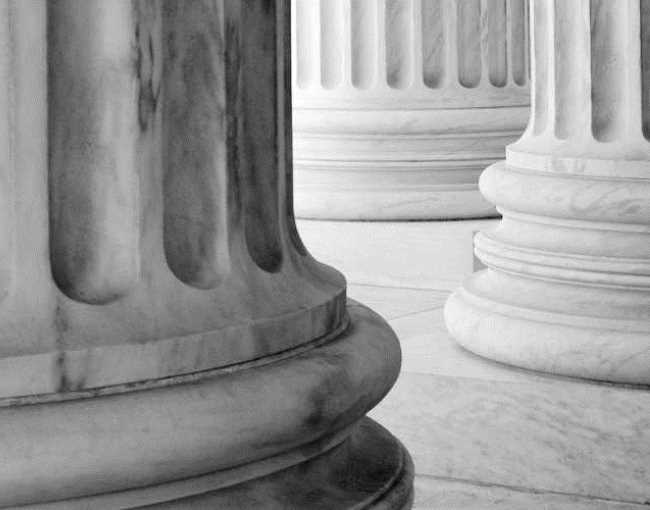
Bill Bay hosts Gideon v. Wainwright anniversary panel, live stream
January 30, 2013
As chair of the ABA Section of Litigation, partner Bill Bay recently hosted a panel discussion commemorating the 50th anniversary of Gideon v. Wainwright, the landmark decision that recognized the constitutional right to the appointment of counsel for indigent criminal defendants charged with felonies.
The session’s panelists included Stetson University law professor Bruce Jacob, who argued the original Gideon case on behalf of the state of Florida; Carlos Martinez, the public defender for Miami Dade County; and Anthony Graves, a defendant who spent nearly 18 years on death row before being exonerated and released from prison in 2010. He was the subject of an Emmy-winning “48 Hours” program.
Former New York Times columnist Anthony Lewis, author of “Gideon’s Trumpet,” contributed pre-recorded comments to the session, which was moderated by Joanne Epps, dean of the Temple University Beasley School of Law. The program also featured archived news footage of a 1964 CBS News report on Clarence Gideon.
Graves’ incredible story of wrongful conviction, imprisonment, and eventual release affected all attendees at the presentation, held Jan. 18 at the winter meeting of the Section of Litigation in Marco Island, Fla.
“Understand, these cases have a ripple effect,” Graves said. “I watched my children grow up without me. I can't ever get that back. My mother and my family were on death row with me for 18 years. And nobody ever apologized to them.”
Click here to watch a short excerpt of Anthony Graves’ story (best viewed using Google Chrome).
As the Section did with its fall meeting in St. Louis, the group live-streamed the panel discussion, where hundreds of people watched the video and exchanged online comments about the content. Attendees also tweeted their praise for the program. “Anthony Graves is telling us an amazing, almost unbelievable story of injustice. The system is broke.” “Thank you for organizing this. I will be writing about it, so much valuable, concrete information!”
Bay organized the program and introduced the panel. “After Gideon, never again would a poor defendant stand in a courtroom and face a possible jail sentence without a lawyer at his side,” Bay said.
At the conclusion of Graves’ emotional story, Bay said, “I told you this program would remind you why you went to law school. The most amazing thing about Anthony Graves' story is that it didn't happen in 1963. It happened in 2010. In the end, Anthony Graves' attorneys were diligent and good and did the right thing. That's what we need to be about.”
